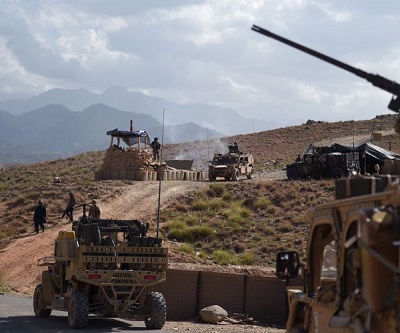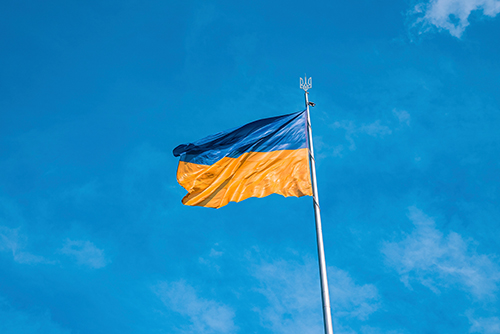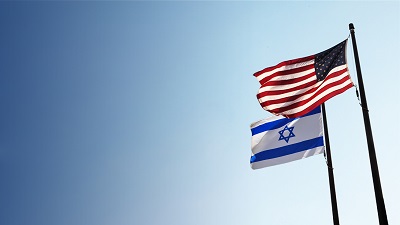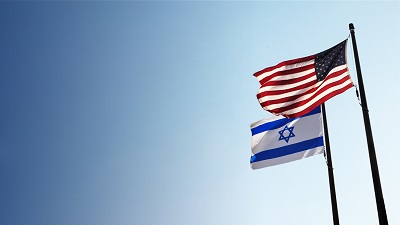Tackling Terrorism 3.0: Terror's Shift Into Big Business
 As the war waged in Syria has moved forward with YPG (Kurdish) troops in the North and U.S.-supported FSA and Iraqi Troops in the East, ISIS took major hits and was reduced in operational functionality over 2017.
As the war waged in Syria has moved forward with YPG (Kurdish) troops in the North and U.S.-supported FSA and Iraqi Troops in the East, ISIS took major hits and was reduced in operational functionality over 2017.
The Trump Administration’s push into infiltrating ISIS cells on Telegram led to further wins in 2018 — however this led to shifts in ISIS’s operational strategy and focus.
With much of Syria lost, ISIS has moved in two major directions:
1) To the North to Afghanistan
2) To the South in Africa (backing up Boko Haram, whose Emirs they started supporting a few years ago, plus linking themselves to Al-Shabab)
This shift has moved terrorist organizations to become commodity traders as well — facilitating ongoing operations and regional control — with significant impacts to how these organizations maintain themselves and continue funding operations into the future. Even with regional strategic wins in Afghanistan’s Nanganhar.
What We Knew: Oil in Syria
“Oil and gas obtained by the Islamic State was sold to Turkey and the Syrian regime,” Razeek Radeek Maksimo, an Azerbaijani national and formerly senior ISIS commander, told Kurdistan 24 from a prison in Rojava where he is held by Syrian Kurdish authorities.
“[Oil] was sold to Turkey through the Free Syrian Army (FSA),” Maksimo told Kurdistan 24.
Impact: Regional instability will continue to lead to illegal oil sales being an issue. Challenges with sustained FSA support in the complicated ground war can lead to continued situations where financial insolvency lends to them brokering oil deals.
The Taliban and ISIS in Afghanistan
While each terrorist organization has different mandates — the Taliban more regional Afghani control, and ISIS with a focus on decentralized warfare against Muslims and Non-Muslims who don’t agree with their cult ideology — their move into commodities complicates how we tackle terror.
The Afghanistan Anti-Corruption Network has reported that the Taliban and the Islamic State together earned approximately $46 million from illegal mining from a single district in eastern Nangarhar province in 2016 alone. Sources in Nangarhar confirmed in December that the Taliban controlled and taxed many marble and talc mines in the Nangarhar district of Khogiani, while Islamic State militants taxed and smuggled talc from nearby Achin district, which was in the news in April 2017 when it was hit by the U.S. military’s most powerful nonnuclear bomb, the Massive Ordnance Air Blast, known as the “mother of all bombs.” For all the attention generated by that bombing, which President Donald Trump commended as a “very, very successful mission,” it failed to diminish the Islamic State’s presence in Achin or curb its illegal mining activities.
Integrity Watch Afghanistan and Global Witness, two anti-corruption watchdogs, said parliament’s failure to nominate a mining minister “risks delaying by several years reforms which were already long overdue.” That delay, they added, “will only encourage the continued corruption of the sector, the further strengthening of armed groups and the insurgency, and the further suffering of the Afghan people.”
Impact: With a shift into long term revenue generation streams, such as mining — both the Taliban and ISIS are setting the stage for further decades-long entrenched warfare — potentially requiring a major shift in military and diplomatic strategies.
ISIS Exploitation in North Africa
The Institute for Security Studies reports:
“In an interview with the ISS, Remy Kasindi, Director of Research at the Centre for Research and Strategic Studies in Central Africa (a think tank based in Bukavu) confirmed that terrorist organizations have infiltrated the illicit mineral networks in the region. Kasindi explained that terror groups such as al-Shabaab and the Allied Democratic Forces-National Army for the Liberation of Uganda (ADF-NALU) have joined hands in smuggling minerals from North Kivu. According to Strategic Intelligence News, ‘ADF-NALU participates in illegal gold mining, timber smuggling and precious metal mining in DRC.' …the DRC government accused Somali mercenaries connected to al-Shabaab of joining ADF-NALU in North Kivu province to destabilise the country. Al-Shabaab’s allegiance to larger international terror groups such as the Islamic State in Iraq and Syria (ISIS) and al-Qaeda means its expansion into the DRC poses a significant threat.”
By 2018, this has become an ongoing challenge.
What this means for the future: ISIS’s movement to operate more like a funding organization for regional terror organizations will increase the complexity of solving conflicts from Afghanistan through Pakistan and now across Africa. Military cooperation with diplomatic collaboration will be key.








